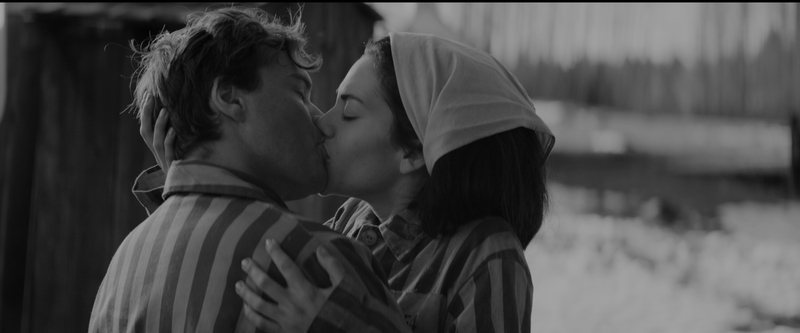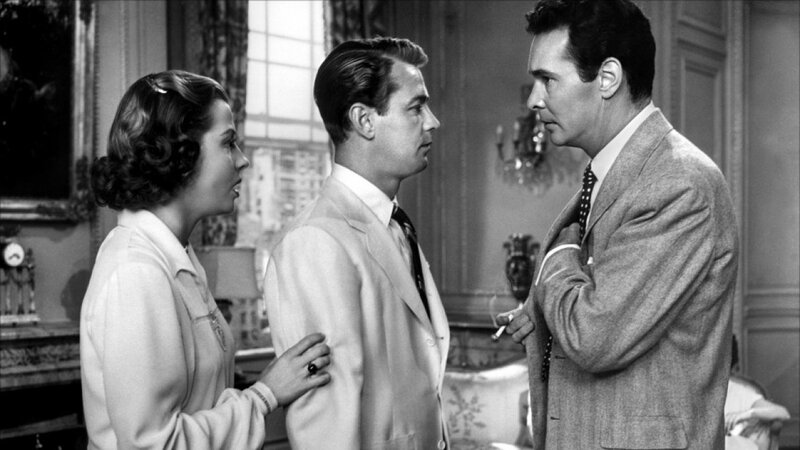
Witness to History, Told With Tenderness
MOVIE REVIEW
Bau: Artist at War
–
Genre: Biography, Drama, War
Year Released: 2025
Runtime: 2h 10m
Director(s): Sean McNamara
Writer(s): Deborah Smerecnik, Ron Bass, Sonia Kifferstein
Cast: Emile Hirsch, Inbar Lavi, Yan Tual, Adam Tsekhman, Edward Foy, Chris Cope, Josh Blacker, Josh Zuckerman, Eugene Lipinski, Dalias Blake, Pam Kearns, Tori Griffith
Where to Watch: theatrical release by ShowBiz Direct in the U.S. and Canada on September 26, 2025
RAVING REVIEW: There’s a depth to stories like BAU, ARTIST AT WAR that goes beyond the mechanics of filmmaking. Sean McNamara’s dramatization of Joseph Bau’s life doesn’t just retell history—it actively engages with the question of how love and art can endure when surrounded by cruelty. The film’s premise alone places it alongside some of the most emotionally charged narratives in the war drama genre. But what keeps it from being swallowed by the familiar tropes of Holocaust cinema is the specificity of its subject: a man who turned creativity into resistance.
Set against the horrors of Nazi-occupied Europe, the film traces Bau’s journey as a skilled forger and artist who risked his own life to help others survive. While the narrative unflinchingly addresses the cruelty and dehumanization of concentration camps, it also builds an emotional throughline in Bau’s improbable and almost fantastical love story with fellow prisoner Rebecca. The film avoids reducing this romance to a mere subplot—it becomes the axis around which the rest of the story turns.
Emile Hirsch’s portrayal of Joseph Bau is quietly riveting. Known for performances that combine intensity with a certain essence, Hirsch brings both a survivor’s weariness and a spark of defiance to the role. His Bau is not romanticized into a flawless hero; he’s pragmatic, often operating in moral gray areas, yet driven by a desire to preserve life and dignity wherever possible. Inbar Lavi delivers a nuanced portrayal of Rebecca—her performance isn’t built on sweeping declarations of love, but rather on small gestures, glances, and moments of mutual understanding that feel deeply authentic. It’s hard to share the screen with such a powerful performer like Hirsch, but Lavi does so in strides that feel like a natural extension of her character.
McNamara’s direction leans on restraint, which works in the film’s favor. There are moments of brutality, yes, but they’re not the centerpiece. Instead, the focus is on the endurance of spirit. This is supported by Ron Bass, Deborah Smerecnik, and Sonia Kifferstein’s screenplay, which weaves Bau’s artistic work into the plot, utilizing his skills as both a narrative device and a metaphor for resilience.
The supporting cast contributes to the film’s authenticity. Yan Tual offers a quietly menacing presence as Franz Gruen, a role that avoids the cartoonish villainy often found in films about the Holocaust. Adam Tsekhman’s Itzhak Stern, while not the central figure here, provides important connective tissue for the story’s depiction of organized survival efforts. Josh Zuckerman, Edward Foy, and others fill out the ensemble with performances that feel lived-in rather than ornamental.
Visually, the film employs muted palettes and shadowy interiors, conveying the suffocating environment of the camps while also allowing moments of warmth to break through, both figuratively and literally. The runtime of 2 hours and 10 minutes might feel long to some viewers, but it allows the film to explore not only the events but also their aftermath. In later scenes, the moments shift the film into a different kind of tension—not survival in the camps, but the emotional survival of revisiting trauma.
BAU, ARTIST AT WAR hits many of the emotional notes expected in a story of Holocaust survival, but it’s the attention to Bau’s identity that elevates it. McNamara resists the temptation to frame him purely as a historical witness; instead, he becomes a creator whose work was as much about sustaining the human spirit as it was about deception for survival. The idea that a brushstroke or a forged document could mean the difference between life and death adds an urgency to every scene involving his craft.
It’s a film that lingers—not because of shock value, but because it reminds us that history’s darkest chapters were also filled with moments of profound connection. Joseph and Rebecca Bau’s story isn’t just about what they endured—it’s about what they chose to protect: the ability to love, to create, and to imagine a life beyond survival.
Please visit https://linktr.ee/overlyhonestr for more reviews.
You can follow me on Letterboxd, Instagram, Twitter, and YouTube. My social media accounts can also be found on most platforms by searching for 'Overly Honest Reviews'.
I’m always happy to hear from my readers; please don't hesitate to say hello or send me any questions about movies.
[photo courtesy of BONDIT MEDIA CAPITAL, BROOKWELL-MCNAMARA ENTERTAINMENT, BUSY BEE FILM PRODUCTION, IRON IMAGE, REPUBLIC PICTURES, SHOWBIZ DIRECT, PARAMOUNT GLOBAL CONTENT DISTRIBUTION]
DISCLAIMER:
At Overly Honest Movie Reviews, we value honesty and transparency. Occasionally, we receive complimentary items for review, including DVDs, Blu-rays, CDs, Vinyl Records, Books, and more. We assure you that these arrangements do not influence our reviews, as we are committed to providing unbiased and sincere evaluations. We aim to help you make informed entertainment choices regardless of our relationship with distributors or producers.
Amazon Affiliate Links:
Additionally, this site contains Amazon affiliate links. If you purchase through these links, we may receive a commission. This affiliate arrangement does not affect our commitment to honest reviews and helps support our site. We appreciate your trust and support in navigating these links.



Average Rating